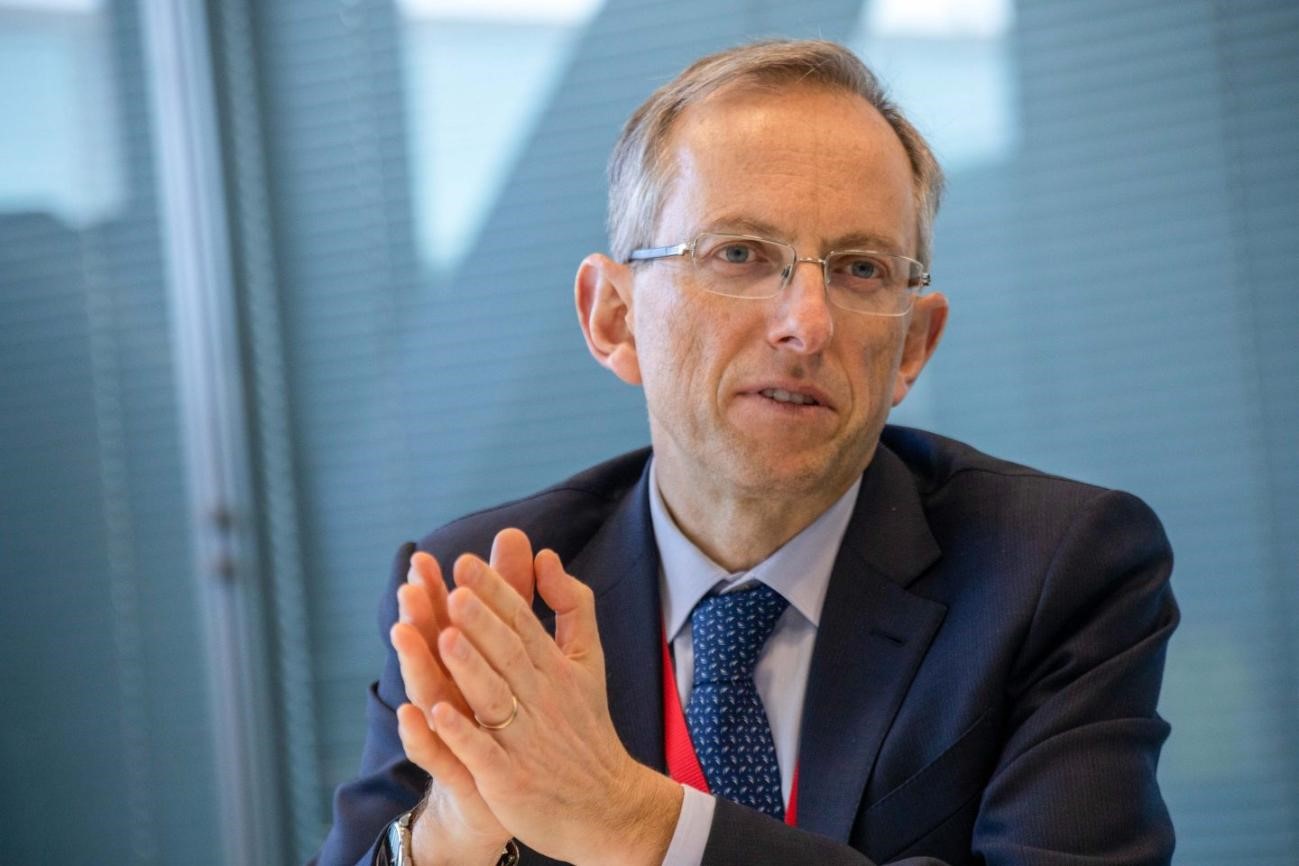
多年來,法拉利(Ferrari)遲遲沒有加入電動汽車革命,但它終于迫于壓力,開始開發全電動汽車。然而,這家意大利高檔汽車公司表示,公司不可能屈從于另外一種汽車行業的重要趨勢:自動駕駛汽車。
法拉利的首席執行官貝內德托·維尼亞稱,該超級跑車制造商的標志性品牌是設計人們希望親手駕駛的跑車,像特斯拉(Tesla)等公司一樣開發自動駕駛技術違背了公司的精神。
維尼亞于5月9日在《金融時報》于英國倫敦主辦的“未來汽車峰會”(Future of the Car Summit)上指出:“有四種軟件。分別是性能軟件、舒適度軟件、娛樂信息軟件和自動駕駛軟件。”
他繼續說道:“我們不關心最后一種。”
這并非維尼亞或者其他法拉利高管第一次承諾不會開發自動駕駛汽車。他們表示,讓汽車自動駕駛違背了買車的目的,因為購買法拉利的大多數客戶并不想由其他的人或物駕駛他們的汽車。
維尼亞2022年在接受彭博社采訪時稱:“沒有客戶會為了享受兜風的樂趣,而為車內的計算機付費。人的價值,以人為本,這才是根本原則。”
法拉利的高管曾經在2016年表示,在短期內,自動駕駛技術不在公司的考慮范圍之內。時任法拉利產品營銷總監的尼古拉·博阿里在接受《汽車》(Car)雜志采訪時說:“在可以預見的未來,法拉利不會有自動駕駛汽車。我們希望用戶在駕駛法拉利的時候保持專注。”
在《金融時報》舉辦的峰會上,維尼亞表示,法拉利的所有產品幾乎都在內部完成生產,法拉利對此感到自豪,公司高管可能無論如何都不想專門拿出資源開發自動駕駛技術。
據麥肯錫2021年的報告顯示,從老牌車企到專注于自動駕駛的初創公司,自2014年以來,車企在自動駕駛技術方面已經投入了超過1,000億美元。但很少有公司能夠拿出值得炫耀的投資成果,因為僅特斯拉汽車的自動駕駛輔助系統已經造成了數百起事故。
雖然遭遇了挫折,但許多汽車廠商仍然在不斷加大對自動駕駛技術的投資,尤其是有大型母公司支持的公司。例如,大眾汽車(Volkswagen AG)在2022年宣布投資23億美元,與一家中國自動駕駛公司成立合資公司。大眾汽車公司是全球銷量最高的汽車廠商之一,旗下包括大眾、奧迪(Audi)和保時捷(Porsche)等品牌。
雖然保時捷至少在短期內不會開發自動駕駛汽車,但維尼亞講述了公司的未來電動汽車計劃,這可能令希望該豪車品牌現代化的潛在客戶備受鼓舞。
法拉利一直不愿意將強大的內燃機發動機換成安靜的電池,原因與其反對自動駕駛的原因相同。2013年,該公司的時任董事長盧卡·迪·蒙泰澤莫洛公開表示,“只要我擔任董事長,法拉利就永遠不會生產電動汽車”,因為公司當時忙于發展核心業務。
但過去十年,電動汽車變得日益流行,包括保時捷和瑪莎拉蒂(Maserati)等跑車品牌紛紛推出了電動汽車車型。為了保持競爭力,法拉利正在開發第一款全電動汽車,預計將在2025年上市,法拉利甚至宣布到2030年整個價值鏈,從材料采購到生產均實現碳中和。法拉利會繼續生產混合動力和內燃機汽車,使用由捕集的二氧化碳排放和清潔生成的氫生產的電子燃料。
法拉利在2022年發布的財務前景預測中,提出了到2030年混合動力或全電動汽車的銷量占比達到80%的目標,在本周舉辦的《金融時報》峰會上,維尼亞重申,由于使用電子燃料,公司的增長計劃“完全符合”其碳中和目標。(財富中文網)
譯者:劉進龍
審校:汪皓
多年來,法拉利(Ferrari)遲遲沒有加入電動汽車革命,但它終于迫于壓力,開始開發全電動汽車。然而,這家意大利高檔汽車公司表示,公司不可能屈從于另外一種汽車行業的重要趨勢:自動駕駛汽車。
法拉利的首席執行官貝內德托·維尼亞稱,該超級跑車制造商的標志性品牌是設計人們希望親手駕駛的跑車,像特斯拉(Tesla)等公司一樣開發自動駕駛技術違背了公司的精神。
維尼亞于5月9日在《金融時報》于英國倫敦主辦的“未來汽車峰會”(Future of the Car Summit)上指出:“有四種軟件。分別是性能軟件、舒適度軟件、娛樂信息軟件和自動駕駛軟件。”
他繼續說道:“我們不關心最后一種。”
這并非維尼亞或者其他法拉利高管第一次承諾不會開發自動駕駛汽車。他們表示,讓汽車自動駕駛違背了買車的目的,因為購買法拉利的大多數客戶并不想由其他的人或物駕駛他們的汽車。
維尼亞2022年在接受彭博社采訪時稱:“沒有客戶會為了享受兜風的樂趣,而為車內的計算機付費。人的價值,以人為本,這才是根本原則。”
法拉利的高管曾經在2016年表示,在短期內,自動駕駛技術不在公司的考慮范圍之內。時任法拉利產品營銷總監的尼古拉·博阿里在接受《汽車》(Car)雜志采訪時說:“在可以預見的未來,法拉利不會有自動駕駛汽車。我們希望用戶在駕駛法拉利的時候保持專注。”
在《金融時報》舉辦的峰會上,維尼亞表示,法拉利的所有產品幾乎都在內部完成生產,法拉利對此感到自豪,公司高管可能無論如何都不想專門拿出資源開發自動駕駛技術。
據麥肯錫2021年的報告顯示,從老牌車企到專注于自動駕駛的初創公司,自2014年以來,車企在自動駕駛技術方面已經投入了超過1,000億美元。但很少有公司能夠拿出值得炫耀的投資成果,因為僅特斯拉汽車的自動駕駛輔助系統已經造成了數百起事故。
雖然遭遇了挫折,但許多汽車廠商仍然在不斷加大對自動駕駛技術的投資,尤其是有大型母公司支持的公司。例如,大眾汽車(Volkswagen AG)在2022年宣布投資23億美元,與一家中國自動駕駛公司成立合資公司。大眾汽車公司是全球銷量最高的汽車廠商之一,旗下包括大眾、奧迪(Audi)和保時捷(Porsche)等品牌。
雖然保時捷至少在短期內不會開發自動駕駛汽車,但維尼亞講述了公司的未來電動汽車計劃,這可能令希望該豪車品牌現代化的潛在客戶備受鼓舞。
法拉利一直不愿意將強大的內燃機發動機換成安靜的電池,原因與其反對自動駕駛的原因相同。2013年,該公司的時任董事長盧卡·迪·蒙泰澤莫洛公開表示,“只要我擔任董事長,法拉利就永遠不會生產電動汽車”,因為公司當時忙于發展核心業務。
但過去十年,電動汽車變得日益流行,包括保時捷和瑪莎拉蒂(Maserati)等跑車品牌紛紛推出了電動汽車車型。為了保持競爭力,法拉利正在開發第一款全電動汽車,預計將在2025年上市,法拉利甚至宣布到2030年整個價值鏈,從材料采購到生產均實現碳中和。法拉利會繼續生產混合動力和內燃機汽車,使用由捕集的二氧化碳排放和清潔生成的氫生產的電子燃料。
法拉利在2022年發布的財務前景預測中,提出了到2030年混合動力或全電動汽車的銷量占比達到80%的目標,在本周舉辦的《金融時報》峰會上,維尼亞重申,由于使用電子燃料,公司的增長計劃“完全符合”其碳中和目標。(財富中文網)
譯者:劉進龍
審校:汪皓
For years, Ferrari dragged its heels on joining the electric vehicle revolution until it finally caved in and started developing a fully-electric car. But the Italian luxury auto company says it’s unlikely to ever cave to another major car trend: self-driving vehicles.
The iconic supercar maker’s brand is to design sports cars that people want to drive themselves, and capitulating to self-driving technology like others such as Tesla have would be antithetical to the company’s spirit, according to Ferrari CEO Benedetto Vigna.
“There are four kinds of software. There is performance software, there is comfort software, there is infotainment software, and there is autonomous,” Vigna said at the Future of the Car Summit hosted by the Financial Times in London on May 9.
“The last one, we don’t care,” he continued.
It isn’t the first time Vigna or other Ferrari executives have pledged not to go autonomous, arguing that enabling their cars to drive themselves would defeat the purpose of buying one, since most customers who purchase a Ferrari don’t plan on being driven around by someone or something else.
“No customer is going to spend money for the computer in the car to enjoy the drive,” Vigna said in an interview with Bloomberg last year. “The value of the man, of the human at the center, is fundamental.”
Ferrari executives knew as far back as 2016 that self-driving technology was not in the cards for the company any time soon. “There will be no autonomous Ferrari in the foreseeable future,” Nicola Boari, at the time Ferrari’s product marketing director, said in an interview with Car magazine. “When you are driving a Ferrari, we want you to concentrate.”
In the case of Ferrari, a company that proudly does almost all of its production in-house, executives may not have wanted to dedicate resources to develop autonomous driving technology in any case, Vigna suggested at the FT’s summit.
Car companies, from legacy manufacturers to autonomy-focused startups, have sunk over $100 billion into self-driving technology since 2014, according to a 2021 report by consulting firm McKinsey. But few companies have much to show for their investments, as Tesla vehicles equipped with driver assistance systems alone have been accused of causing hundreds of accidents.
Despite the setbacks, many carmakers are doubling down on autonomous driving, especially companies with the backing of large parents. For instance, Volkswagen AG—among the world’s largest automakers by sales that operates brands including Volkswagen, Audi, and Porsche—announced a $2.3 billion investment in a joint venture with a Chinese autonomous driving company last year.
While Ferrari won’t roll out self-driving cars anytime soon, if ever, potential customers hoping the luxury brand will modernize were likely encouraged by Vigna’s comments about the company‘s planned electric future.
For the same reasons Ferrari opposed autonomous cars, it has been reluctant to trade in its powerful combustion-fired engines for quiet batteries. In 2013, the company’s then-chairman Luca di Montezemolo professed that Ferrari would “never manufacture an electric car for as long as I am chairman” as the company scrambled to stay close to its roots.
But the EV tide has only grown in the decade since, with several other sports car brands including Porsche and Maserati introducing their own electrified models. Ferrari is now developing its first fully-electric car, due in 2025, to stay competitive and has even announced a target to hit carbon neutrality by 2030 across its entire value chain, from sourcing materials to manufacturing. The company will continue to produce hybrids and internal-combustion vehicles, utilizing e-fuels made from captured carbon dioxide emissions and cleanly-generated hydrogen.
In a financial outlook presented last year, Ferrari set itself a goal for 80% of its sales to be hybrids or fully electric by 2030, and during the FT summit this week, Vigna reiterated that, due to e-fuels, the company’s growth plan was “fully compatible” with its carbon neutrality goals.






